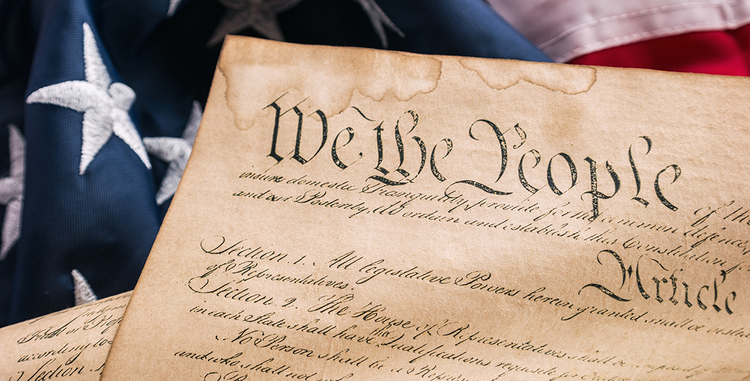


By Sam Francis
12/06/2001
(With apologies to John Greenleaf Whittier)
Less than a month after President Bush signed an executive order authorizing trials of terrorist suspects by military tribunals, the controversy over the legitimacy, constitutionality and simple need for such procedures has reached a crescendo. Conservatives themselves are split over the question, with columnist William Safire and Rep. Bob Barr opposing the tribunals and Robert Bork (among others) defending them. Mr. Bush is lucky to have such defenders, because to judge from his own remarks, he’s not capable of defending the tribunals himself.
Speaking to a conference of U.S. attorneys at the White House last week, the president tried to explain his action. "Non-citizens, non-U.S. citizens who plan and/or commit mass murder are more than criminal suspects. They are unlawful combatants who seek to destroy our country and our way of life. And if I determine that it is in the national security interest of our great land to try by military commission those who make war on America, then we will do so."
There’s no quarrel with the sentiment that those who really do commit mass murder are more than "suspects." But the point, obvious to any eighth-grade civics student, is that we can’t know they're murderers until they are tried fairly. The problem with the president’s defense is that it begs several questions. How do we know the defendants before the tribunals are really guilty? Why, for that matter, should such procedures be restricted to non-citizens? And why does the president alone — without consultation with or authorization by Congress — get to determine what’s in our national security interests and why ordinary courts of law should not be used?
Unfortunately, the answers offered by some of the president’s supporters aren’t much better. Writing in The New York Times the same day Mr. Bush spoke, White House counsel Alberto Gonzales defended what he called the president’s "power to establish military commissions to try enemy belligerents who commit war crimes." Again, he begs the question of whether those on trial are really guilty, and it’s not clear the president has any such "power."
Mr. Gonzales offers other defenses of the procedures — the military tribunals will "spare American jurors, judges and courts the grave risks associated with terrorist trials" and will be able to "consider the broadest range of relevant evidence to reach their verdicts." Neither reason is valid. We have tried many terrorists throughout American history, as well as gangsters, foreign spies and mass killers, and never has any "risk" to jurors or courts been invoked as an excuse to circumvent ordinary legal procedures. Any such "risk" is part of the civic duty that free citizens bear. The "broadest range of relevant evidence" is merely a circumlocution to conceal the fact that the tribunals will be able to ignore established rules of evidence to convict those brought before them.
Both Mr. Gonzales and Judge Bork, writing in National Review, also cite the need to protect classified intelligence information that would be disclosed before ordinary, public courts. The tribunals will be able to close their proceedings if such information comes up as evidence. But the information still has to be disclosed to tribunal officials, lawyers and defendants who would not otherwise be privy to it, and there have been plenty of espionage cases in recent history that have involved similar disclosures without noticeable damage ensuing. Not one of the arguments for the military tribunals withstands scrutiny.
Judge Bork, however, goes a bit further than most defenders, including Mr. Bush himself, when he argues that "If there is a problem with Bush’s order, it is the exemption of U.S. citizens from trials before military tribunals." Of course, the whole point of the defense has been that non-citizens are not going to be tried. Judge Bork sees nothing wrong with tribunals for either foreigners or Americans, however. That’s the problem.
What’s really worrisome about Mr. Bush’s tribunals is not that they will deny real terrorists their "rights" — the real terrorists in my view should simply be shot on sight, without any trial — but that what the president has authorized will be used in the future precisely for putting Americans on trial for whatever other crimes the president alone has determined threaten our "national security interests" and are so heinous that those who commit them don’t deserve the protection of the law anyway. As Judge Bork notes, "The trial of American terrorists in criminal court would pose all the problems of trying foreign terrorists there." Just so.
After a while, we might as well wonder why we need trials for any defendants, since the crimes they're accused of committing are so dreadful and it’s always so much easier, quicker, safer and cheaper to decide they're guilty and string 'em up as soon as possible.
COPYRIGHT 2001 CREATORS SYNDICATE, INC.
December 06, 2001